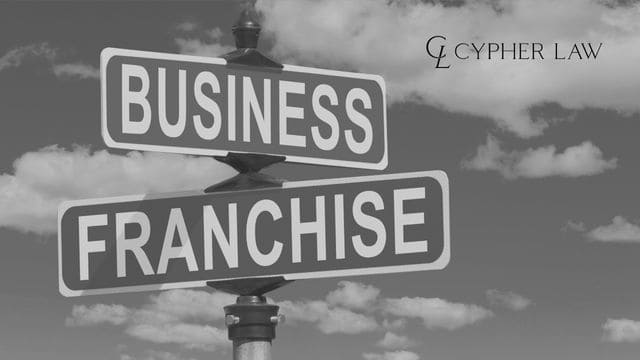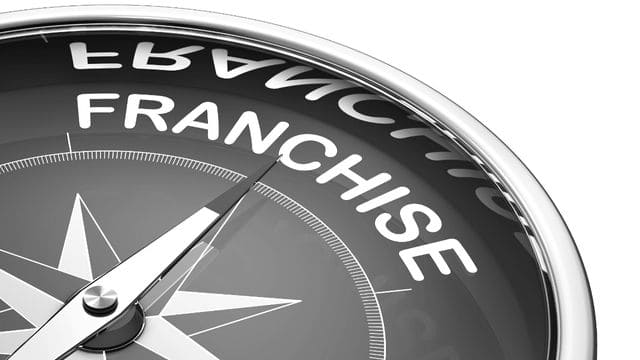Franchisor vs Franchisee: Everything You Need To Know 2022
Table of Contents
The relationship between Franchisor Vs Franchisee is a delicate one. Both parties must maintain a high level of communication and understanding to make the most of the partnership. With that said, there are a few key things that any prospective franchisee should know about the franchisor vs franchisee relationship before signing on the dotted line.
This blog post will explore everything you need to know about Franchisor Vs Franchisee in 2022.
From the implications of the new tax law to the benefits of working with a smaller franchisor, we’ve got you covered.
Phone: 289-816-CYPR (2977)
Fax: 289-312-CYPR (2977)
Office: 755 Queensway East, Suite 202, Mississauga, ON
What is a Franchisor?

A franchisor is a company that grants a license to an individual or group to open and operate a business using the franchisor’s trade name, products, and business model. A contract governs the relationship between the Franchisor Vs Franchisee, called a franchise agreement.
A franchisor must have a successful business model that franchisees can replicate. The franchisor provides training and support to help the franchisee get started and grow the business. In return, the franchisee pays fees and royalties to the franchisor, which typically include an initial investment fee, ongoing royalties, and marketing contributions.
Franchising is a popular way for companies to expand their reach without incurring the costs of opening new locations.
It is also an attractive option for entrepreneurs who want to start their businesses with the support of an established brand.
What is a Franchisee?

A franchisee is an individual or company granted the right to use a franchisor’s trademark, trade name, and operating procedures to sell its products or services. In return for this right, the franchisee pays the franchisor an initial franchise fee and continuing royalty fees.
The relationship between a Franchisor Vs Franchisee is governed by a franchise agreement, which sets forth the rights and obligations of both parties.
The franchisor typically provides the franchisee training and support in marketing, operations, and customer service.
The Difference Between a Franchisor Vs Franchisee

When it comes to Franchisor Vs Franchisee business ownership, there are many different options to choose from.
One option is to become a franchisor, which means you own the franchise and grant other individuals or businesses the right to operate under your brand name.
Another option is to become a franchisee, which means purchasing a franchise from a franchisor and agreeing to use it under their brand name and guidelines.
So, what’s the difference between these two Franchisor Vs Franchisee types of business ownership?
Let’s take a closer look:
As a franchise owner, you have complete control over how your business is run. This includes everything from setting the price of your products or services to dictating the hours of operation for your franchisees.
On the other hand, franchisees must adhere to the rules and regulations set by the franchisor to maintain their license.
Another critical difference between a Franchisor Vs Franchisee is in terms of investment. When you become a franchisor, you invest in developing your brand and business model. On the other hand, franchisees are investing in an existing brand and business model that has been proven successful.
So, which is right for you when it comes to Franchisor Vs Franchisee?
If you have an entrepreneurial spirit and want complete control over your business, becoming a franchisor may be the right choice. If you prefer less risk and don’t mind following someone else.’
How to Decide If Franchising is Right For You

There is no simple answer to deciding if franchising is right for you. It depends on various factors, including your business goals, financial situation, and available resources.
If you’re considering franchising, start by doing your research.
Determine what type of franchise would best fit your business model and goals. Then, evaluate the costs and benefits of franchising vs starting your own business from scratch.
Remember that franchises come with both advantages and disadvantages. Some pros include access to an established brand, a proven business model, and ongoing support from the franchisor. On the flip side, you’ll be subject to specific rules and regulations set by the franchisor, and you’ll have to pay royalties or fees regularly.
Ultimately, whether or not franchising is right for you depends on your unique circumstances.
If you’re unsure, it’s always a good idea to consult a professional before making final decisions.
Conclusion
In conclusion, it is essential to understand the difference between a Franchisor Vs Franchisee before deciding to invest in a franchise.
Both Franchisor Vs Franchisee have pros and cons, so it depends on what you are looking for in a business opportunity.
If you want more control over your business, becoming a franchisor might be the right choice. However, if you prefer to leave most of the decision-making up to someone else, then being a franchisee might be a better option.
Whichever route you choose, do your research and ensure you are fully informed before making any commitments. It is always best to have the support of a professional who can help guide you throughout the process!
For all your Franchisor Vs Franchisee inquires contact us at Cypher Law today.
Phone: 289-816-CYPR (2977)
Fax: 289-312-CYPR (2977)
Office: 755 Queensway East, Suite 202, Mississauga, ON

Leave a Reply